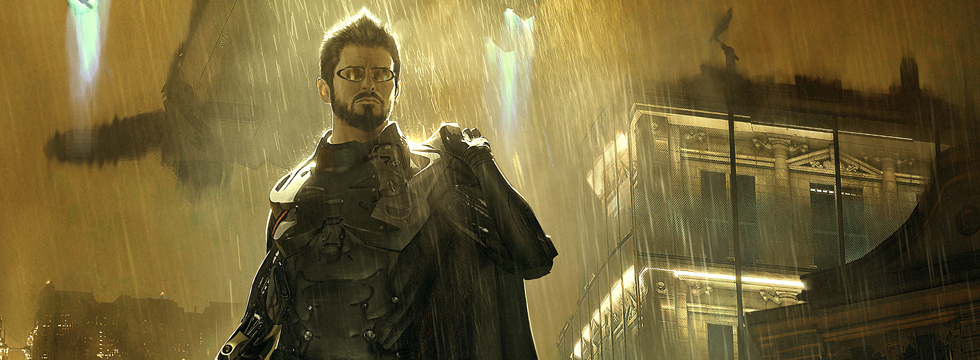author: Meehow
Why Square Enix may have actually pulled the plug on Deus Ex
Recently, we’ve been hearing rumors about the alleged suspension of the Deus Ex series. In this article, I’d like to present possible reasons for such development and share some of my thoughts on the present condition of the said franchise.
The Deus Ex series might be in jeopardy. Gaming websites report that further development of the cyberpunk franchise has allegedly been suspended due to poor sales of last year’s Mankind Divided. Honestly, even before Eurogamer and Kotaku published news on the topic, I had thought that Mankind Divided wasn’t doing very well. Unfortunately, financial failure of such a big investment could be reason enough to shut down the Deus Ex Universe project. Needless to say, this means we might never learn what happened after the finale of the brilliant successor of Human Revolution. In this article, I share some of my thoughts and insights on the recent rumors and the Deus Ex franchise’s general condition of late.
A bit of history
Deus Ex: Human Revolution was a great comeback of the Deus Ex series after it had been left for dead for 8 years due to, unsurprisingly, disappointing sales of 2003’s Deus Ex: Invisible War. The disappointment of the publisher – Eidos Interactive, later acquired by Square Enix – was so big that Deus Ex: Clan Wars eventually became the game we know today as Project: Snowblind. In any event, Invisible War sold over 1.2 million copies as of April 2011, while Human Revolution accomplished this in slightly over a week. As of November 2011, almost 2.2 million gamers bought the prequel to the legendary Deus Ex. Alas, official sales data for later periods is unavailable. If VGChartz is to be trusted, Human Revolution was bought by 3.45 million people in retail. On Steam alone, Human Revolution can be found in libraries of more or less 2.2 million PC gamers, although you have to count out the retail copies (about 600,000 according to VGChartz) and make allowances for a myriad of bargain offers and bundles that generated significantly less profit than full-price sales. What’s more, SteamSpy says that Deus Ex: Human Revolution – Director's Cut is owned by approximately 1.5 million Steam users. Obviously, we aren’t talking about any broken records here, but in general, Square Enix’s data must have indicated a substantial number of players who were considered potential buyers of a sequel. Add that and Human Revolution’s universal acclaim – as evidenced by scores on Steam, Metacritic, and even Gamepressure – and it’s no wonder that the publisher’s financial expectations were high. A satisfied player is one willing to spend money, after all. The problem is that Square Enix likely misjudged the number of people actually waiting for a sequel.
If there’s some truth to the rumors of Mankind Divided’s poor sales, I can provide several potential reasons behind this situation. One of them was already described above.
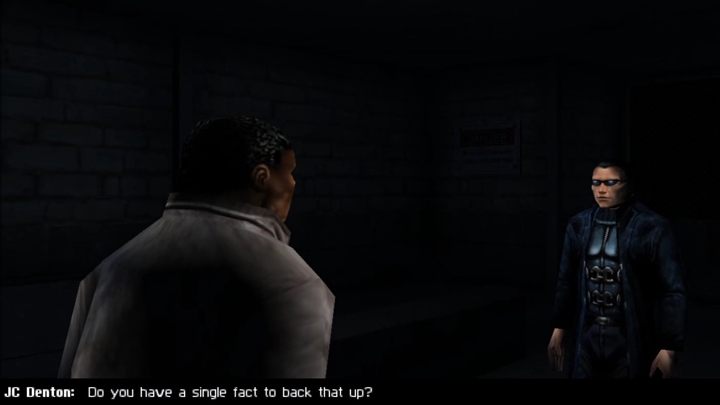
My pre-order is augmented
The unpopular and, in my opinion, downright offensive campaign known under the name of Augment Your Pre-Order could be the first among several times when Square Enix shot itself in the foot. The program somewhat resembled Kickstarter campaigns – the more pre-orders placed, the more bonuses were to be included in them. The publisher would even release Mankind Divided four days early had the last tier been achieved. It’s easy to guess that potential customers and critics alike reacted negatively to a campaign that reeks of forcing the players to buy a pig in a poke. With numerous badly optimized and bugged games coming out in recent years, such undertaking simply had to fail. Ultimately, Square Enix cancelled it and included all bonuses in both pre-orders and day-one editions of Deus Ex: Mankind Divided. Still, the bad taste lingered.
Calm before the (sh*t)storm
I do not believe Square Enix is to blame in this case, but the company definitely should have considered a possible blowback of a marketing campaign before launching it. I’m referring to the controversies surrounding the term “mechanical apartheid” and the “Aug Lives Matter” slogan. Among the critics was Manveer Heir, a gameplay designer of the upcoming Mass Effect: Andromeda who is known to post quite peculiar tweets about white people every now and then (I encourage you to ask Google and see for yourself). In any event, I believe this particular topic isn’t worth anyone’s while, but Mankind Divided’s developers did respond to completely absurd accusations of the game’s alleged racism and politicization on several occasions. I was not surprised by this, mind you, for I know that some people consider even a hidden humorous limerick a sign of intolerance and discrimination. Unfortunately, such people are able to successfully give bad publicity to a game (vide Firedorn Lightbringer). Bad publicity that is undeserved, at that.
The most notable response to the controversy is definitely the angry Reddit post by Gilles Matouba (who described himself as a Black Frenchman), a former Game Director of Deus Ex: Mankind Divided. Matouba shared the story behind the “mechanical apartheid” and expressed great anger at “gross, false assumptions and accusations” and “SJW [Social Justice Warrior] sh*t tweets”, among other things. Moreover, Elias Toufexis – the actor who voiced Adam Jensen in Human Revolution and Mankind Divided – posted a tweet in which he obviously mocked netizens who complained about the latest Deus Ex exploring “serious social and political issues” the way it did.
I am not convinced that this controversy was a major factor when it came to sales, but I certainly cannot rule it out completely. It is a possibility that the offended didn’t buy the game, if they ever intended to, and perhaps even discouraged other gamers.
Ironically, Big Brother is watching…
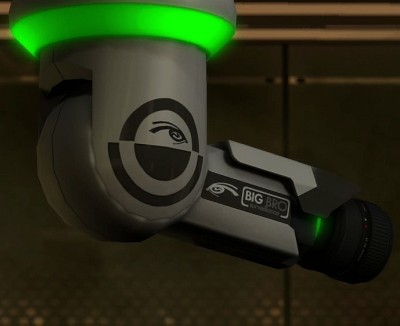
Big Bro Surveillance in Deus Ex: Human Revolution. Subtle as a boot to the face.
The next issue is based on a rumor shared by a Youtuber named Jim Sterling. In an episode of The Jimquisition show, Sterling claims that he came into contact with a person involved in the development of Deus Ex: Mankind Divided. His anonymous source revealed that the decision to include microtransactions in the game was supposedly made at the last minute, and thus the developers had to implement them on Square Enix’s behest instead of focusing on polishing the end product for the imminent launch. Similarly, the optional Breach mode – recently made standalone and available free of charge – was allegedly shoved into Mankind Divided on publisher’s order. Obviously, its implementation must have consumed extra resources, assuming that it’s true. Then, it’s no secret that microtransactions in premium titles make some more idealistic gamers’ NOPE-meter go off the charts. At any rate, this rumor has one wonder to what extent did Square Enix interfere with Eidos Montreal’s creative process.
Personally, I find it difficult not to – to put it lightly – dislike Square Enix when I visit PlayStation Store or Microsoft Store and see products like Praxis Kit Pack. The same applies to one-time use pre-order bonuses. I’m not trying to tell anybody what they should spend their money on – I’m merely disgusted by this policy of monetizing elements of a game for which I have already paid a full price. Perhaps it’s my complaining nature, but I grew up in times when you only had to pay for new content, not for speeding up your progress in single player gameplay. While microtransactions in premium online games are something I’m willing to accept – server maintenance and post-launch support are not free after all – I see selling in-game items or currency for solo mode as a manifestation of disgusting, unethical greed. I don’t know what, if any, profit is generated by microtransactions in Mankind Divided, but the rumors described above seem to suggest that moneybags aren’t piling up in the publisher’s bank vault. But isn’t that what happens when you insult your consumer while pretending to give them something of value?
Deus Ex: Sequel Cancelation
Sterling also mentions that Eidos Montreal was supposedly working on two Deus Ex games simultaneously: Mankind Divided and its sequel, which was in development since at least mid-2015. That’s why it is quite likely that the next installment in the series was supposed to become available quicker than last time. According to the latest reports by Kotaku, this sequel was cancelled due to poor sales of Mankind Divided. As I wrote earlier, Square Enix may have put too much faith in Deus Ex Universe. Unfortunately, the belief in the project’s inevitable success resulted in a game that ends with a cliffhanger. Needless to say, it simply isn’t fair that people who bought the game may never learn what happened next or will live to actually see 2029 before they do. To make things worse, it would not be so bad if Mankind Divided ended similarly to Human Revolution – that is, with events that CAN but DON’T HAVE TO be continued. Unfortunately, Mankind Divided absolutely fails to provide a satisfying conclusion to its story and on top of that explicitly shows that we are lightyears away from receiving the answers we deserve. Personally, I don’t think it’s Eidos’ idea – certainly not after the great job they did with creating the previous Deus Ex and considering the obvious fact that a publisher-owned studio doesn’t make decisions whether or not a game receives a sequel.
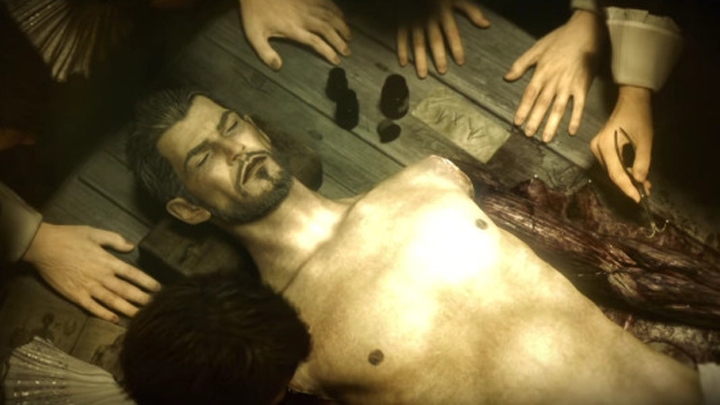
Great expectations
The last unconfirmed information from Sterling is that Square Enix spent so much money on development and marketing of Deus Ex: Mankind Divided that it has to sell 3 million copies (full-price ones, I assume) to merely break even. Unfortunately, this story is anything but unlikely – you only have to remember that Square Enix was disappointed in how 2013’s Tomb Raider performed. Just a remainder: it sold 3.4 million copies within less than a month of availability but still failed to meet the publisher’s expectations. What’s worse, it turned out that the production only became profitable at the end of 2013, while it had debuted in March. In that case, however, everything ended well, but only due to the release of Tomb Raider: Definitive Edition for next-gen consoles and total sales reaching 8.5 million copies worldwide (as of April 2015).
Unfortunately, I sincerely doubt that any Deus Ex game can achieve a similar result – the series simply offers the kind of story that is rather complicated and practically unseen in other titles. This could mean that it’s hard to design such a production and even harder to successfully sell it to the gamers. It makes me think of 2010’s Alpha Protocol, which was also abandoned due to unsatisfactory sales. Both Alpha Protocol and Deus Ex attract a very specific niche rather than a general audience. Although Mankind Divided did try to appeal to first-person shooter fans by stressing the lethal approach possibilities in promotional materials, the attempt to please a wider variety of consumers was in my opinion doomed to fail, given the amount of better alternatives to something that remains a story-driven stealth game at its core. Considering that Deus Ex: Mankind Divided was discounted as much as 75% off the full price just several months after its release, I’m inclined to believe that the whole five-year investment couldn’t pay for itself, let alone generate a profit. And this is definitely bad news for Deus Ex fans.
Discouraged by great reviews?
Deus Ex: Mankind Divided, despite theoretically high demand and generally very good reviews, turned out to have performed significantly worse than its predecessor, which sold nearly a million copies within a week. The review embargo was lifted on August 19, if my memory serves me correctly, so gamers had a couple of days to read the reviews, and something might have discouraged them. Personally, I bet my money on the definitely premature ending of the story, which, I have to say, truly surprised and disappointed me when I played the game prior to writing my review. Having considered Mankind Divided an incomplete product, some people may have decided to wait for a GOTY edition or, like myself, for a large discount. Surely, the information about the pre-order bonus mission being evidently cut out from the main story didn’t help either. Moreover, after the launch, you could come across complaints about poor performance and technical issues of the PC version on the Internet, which was also rather discouraging.
Too few consoles at homes
As far as consoles are concerned, we have neither exact nor estimated sales data, but we do know that the target platforms were available for just under three years at the moment of Mankind Divided’s release. In comparison with the launch period of Human Revolution, it is half as long as Xbox 360. PlayStation 3, in turn, hit the stores about a year later, which gives us five years of availability. In my opinion, the number of the eight-generation consoles at gamers’ homes was not without influence on the sales performance of the latest Deus Ex.
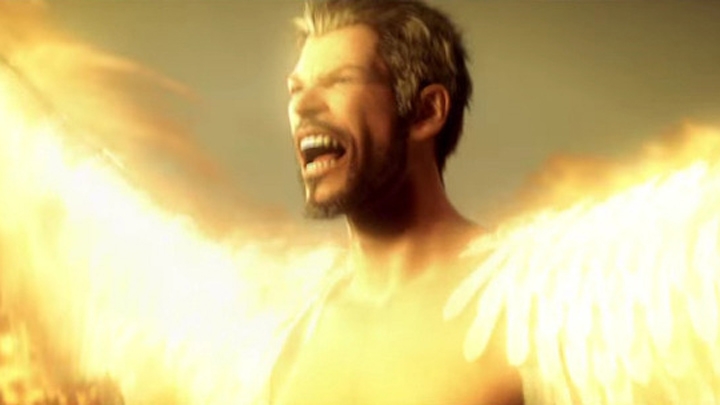
Quo vadis, Deus Ex?
As of yet, Square Enix hasn’t confirmed or denied the reports about the alleged suspension of the Deus Ex franchise development, and it’s likely that we won’t learn any details before the end of the fiscal year. However, we do know that Eidos Montreal is working with Marvel and Crystal Dynamics on a more lucrative IP: The Avengers. Furthermore, rumors say that the studio is developing a game based on Guardians of the Galaxy and is helping to create Shadow of the Tomb Raider. The assurance of continued support for Deus Ex: Mankind Divided and further development of Deus Ex Universe is unfortunately an ambiguous answer and maybe even an evasive one. Support means nothing more than patches and expansions, and we know that a DLC entitled A Criminal Past is in the works. As for the Deus Ex Universe, it could be practically anything: a mobile production (such as Deus Ex GO or Deus Ex: The Fall), another novel or comic book, or one more abomination in the vein of Deus Ex: Breach, which is now played by fewer people than the almost 17-year-old Deus Ex (according to SteamSpy). And this is without counting the Deus Ex: Revision megamod released in October 2015.
If Deus Ex: Mankind Divided indeed failed to meet Square Enix’s financial expectations, then I think it is largely the publisher’s own fault. The reasons I can provide include an incorrect assessment of player demand, pumping too much money into the project (Jim Sterling mentioned wasting it on useless things), and possibly resorting to greedy practices. Of course, the console market, over which Square Enix has no influence, could have also had its impact on the lower-than-expected sales, but this factor should have been taken into account nevertheless. After the aforementioned sales and the standalone release of the at most mediocre Deus Ex: Breach, I feel that Square Enix is desperately looking for money to cover the costs of the failed investment. I wouldn’t be surprised if the publisher released an enhanced (augmented, if you will) version of Mankind Divided for PlayStation 4 Pro and later on for whatever console is hidden under the Project Scorpio codename. The problem is that the Deus Ex series is nowhere near as popular as Tomb Raider so I don’t expect the tables to miraculously turn. If, in addition to all of the above, Eidos Montreal is indeed busy working on more bankable franchises, then we’re probably talking about the final nail in Deus Ex’s coffin and Adam Jensen’s forced retirement. Although I really hope a sequel will eventually come out, I don’t expect it to happen in the next five years.
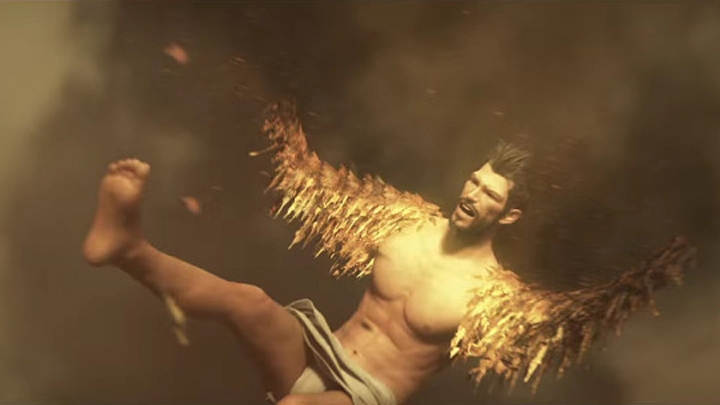
I never asked for this
While I want to believe that the entire matter is exaggerated and that another installment of the series will inevitably be released, I can’t do it in the face of logical and probable reports from multiple independent sources. All in all, it’s a great shame when a franchise as extraordinary as Deus Ex is being shelved, and for purely financial reasons at that. What a rotten way to die.
